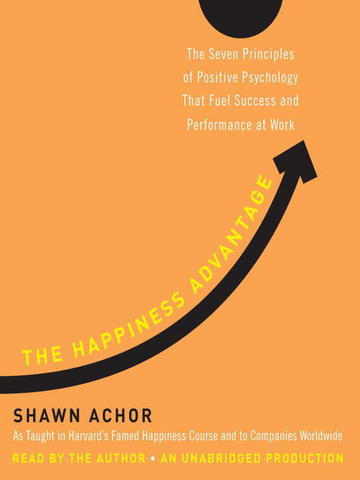 Several years ago, I read about a psychology course being taught at Harvard, “Positive Psychology,” which became the most popular course at the university. The Head Teaching Fellow for the class, Shawn Achor, went on to write and publish, “The Happiness Advantage: The Seven Principles of Positive Psychology That Fuel Success and Performance at Work.”
Several years ago, I read about a psychology course being taught at Harvard, “Positive Psychology,” which became the most popular course at the university. The Head Teaching Fellow for the class, Shawn Achor, went on to write and publish, “The Happiness Advantage: The Seven Principles of Positive Psychology That Fuel Success and Performance at Work.”
A fascinating, well-researched and convincing read, what I found most compelling about The Happiness Advantage was Principle #7: Social Investment. With it, Achor highlights the study, “Very Happy People,” in which researchers sought out the characteristics of the happiest 10 percent among us. Of all the factors considered, including wealth, warmth of climate, and physical fitness, only one characteristic distinguished the happiest 10 percent from everybody else: strength of social relationships.
Achor buoyed the argument with his own research:
My empirical study of well-being among 1,600 Harvard undergraduates found a similar result—social support was a far greater predictor of happiness than any other factor, more than GPA, family income, SAT scores, age, gender, or race. In fact, the correlation between social support and happiness was 0.7. This may not sound like a big number, but for researchers it’s huge—most psychology findings are considered significant when they hit 0.3.
He then goes to explain one of the key mistakes people make that utterly disembowels of our central happiness. During times of challenge and stress, people will retreat into themselves, producing an emotional retraction. Perhaps it’s the perceived stigma of showing fear, of feeling shame, that causes us to divest from our social network. But in doing so, we only isolate ourselves, lose perspective, and most importantly, lose the benefit of having a support network in the first place.
After all, what’s the point of having social capital if we can’t tap into it when we need it most?
I recently experienced this phenomenon while going through some major life changes and relationship issues. I kept retreating, putting on a happy face while hiding the fact that I was dealing with some pretty heady stuff, and in the process, only made the situation worse. Finally, I hit a wall. I realized I couldn’t continue repressing and be happy.
So I finally opened up to a few trusted friends and family members. I even talked to a therapist. And to my own stubborn, arrogant surprise, it worked, as if my soul let out an exasperated sigh of relief.
As Achor warns in The Happiness Advantage, even though basic instincts might compel us to turn inward, positive psychology knows better. It can prove the difference between our ultimate success and failure.